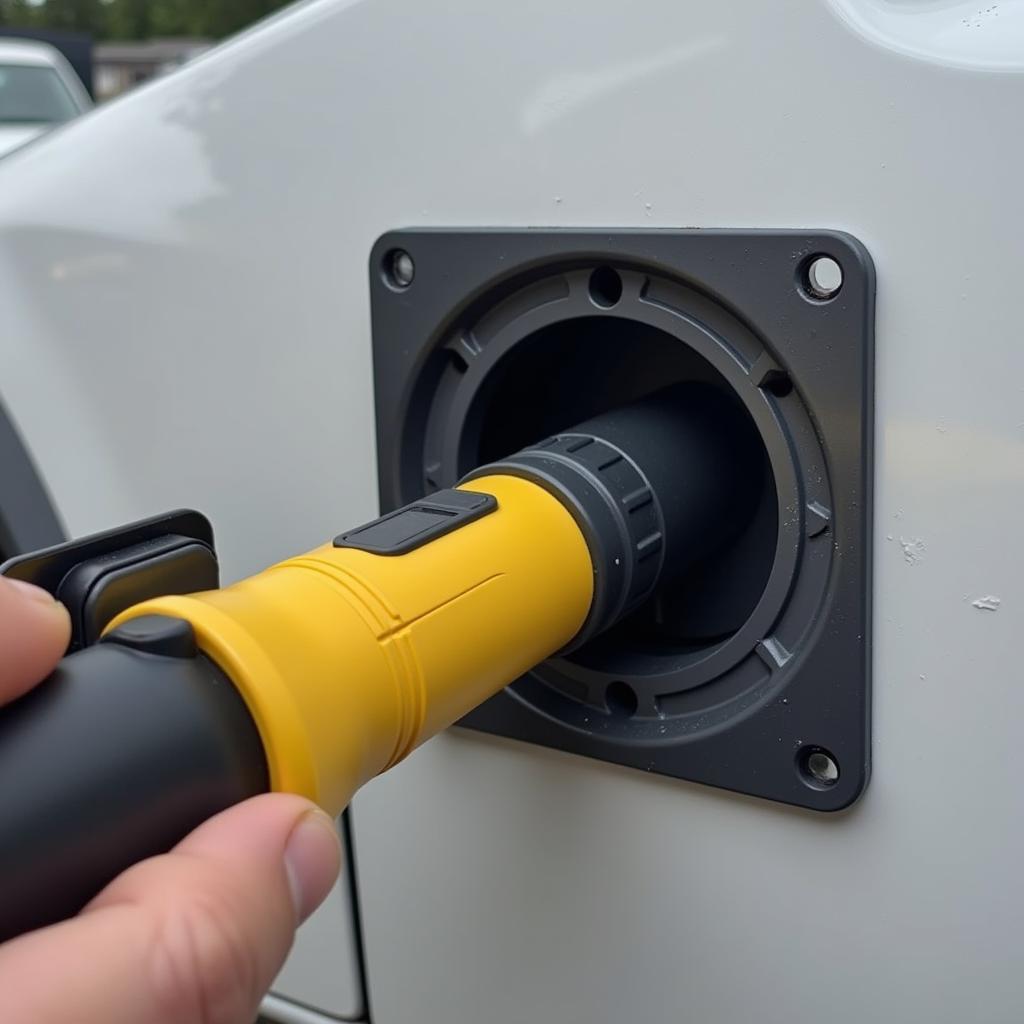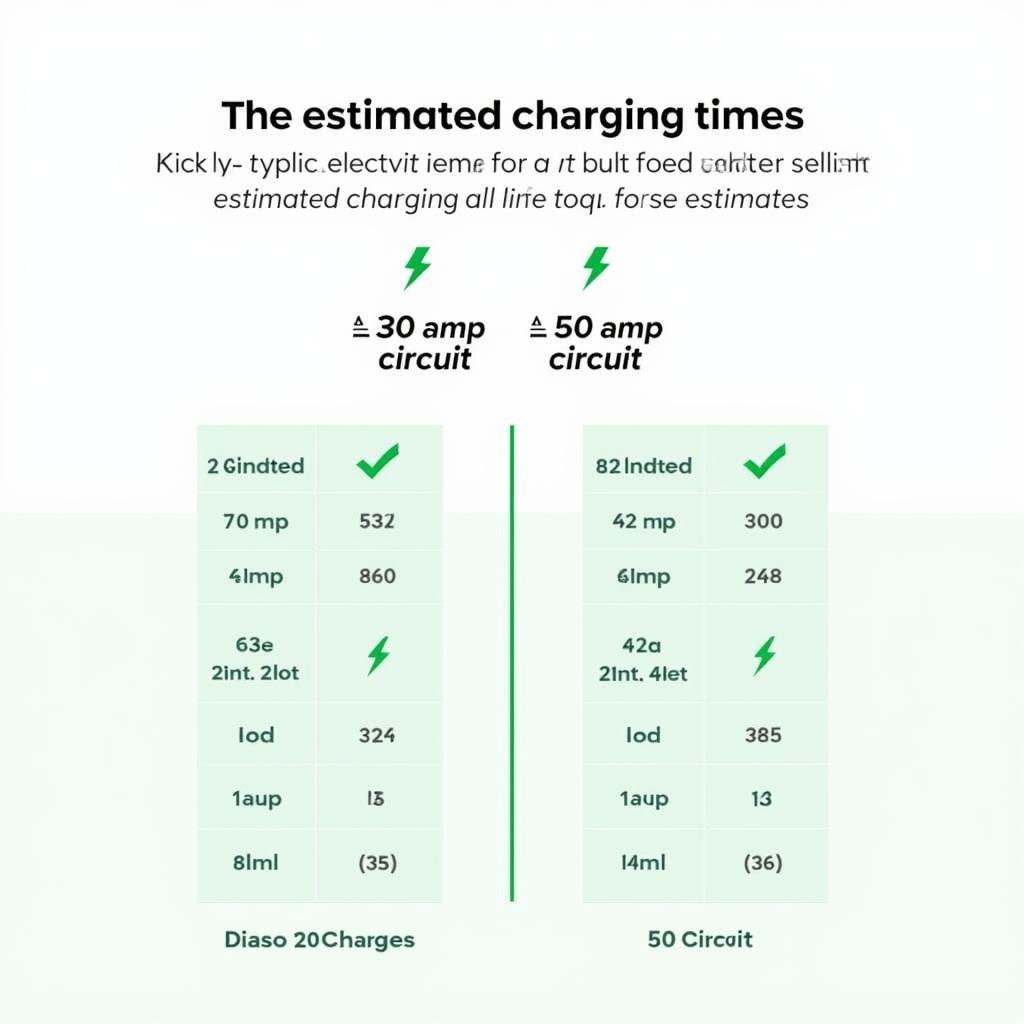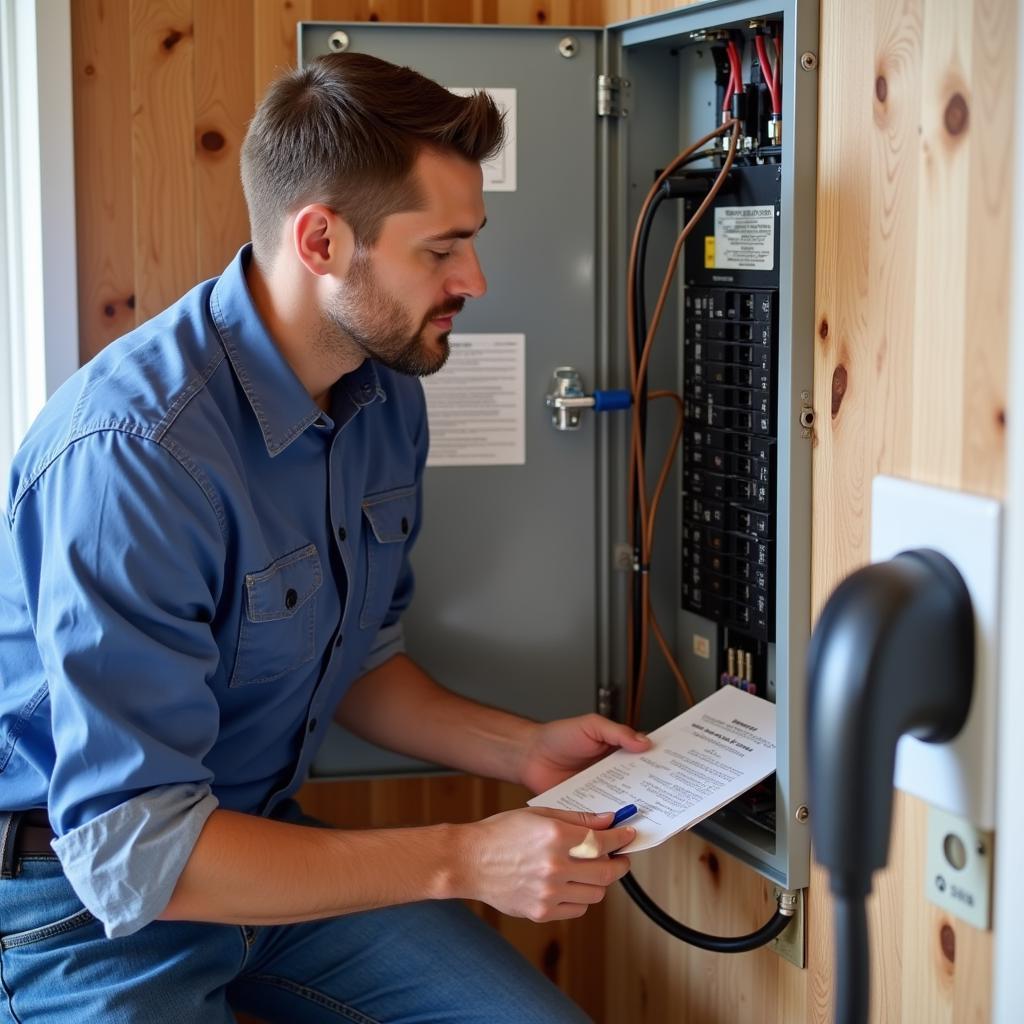Is 30 Amp Service Enough to Charge a Car?
When considering making the switch to an electric vehicle, one of the first questions that pops up is about charging. You know you need to plug it in, but what does that actually entail? More specifically, is your current electrical setup sufficient, or will you need upgrades? A common question is, “Is 30 Amp Service Enough To Charge A Car?” Let’s break it down.
Understanding Amperage and EV Charging
Before we answer the main question, it’s important to grasp the basic concepts of amperage and how it relates to EV charging. Think of electricity like water flowing through a pipe. The amperage is like the diameter of the pipe – the larger the diameter (higher amperage), the more water (electricity) can flow through at once.
Electric vehicle chargers come in different levels, typically measured in amps. These levels determine how quickly your car charges. A higher amperage means faster charging.
 30 Amp Outlet for EV Charging
30 Amp Outlet for EV Charging
30 Amp Service: A Viable Option?
A 30 amp service can indeed be enough to charge an electric car, but there are caveats. Here’s a breakdown:
- Type of EV: Different electric vehicles have different battery capacities and onboard chargers that can accept varying amperages. Some smaller EVs or plug-in hybrids might comfortably charge on a dedicated 30 amp circuit.
- Charging Speed: While a 30 amp circuit will charge your EV, it will likely be at a slower rate compared to higher amperage circuits. This might mean longer charging times, especially for EVs with larger battery packs.
- Dedicated Circuit: It’s crucial that the 30 amp circuit is dedicated solely to EV charging. Sharing the circuit with other appliances can overload it, posing a fire hazard.
 EV Charging Speed Comparison: 30 Amp vs 50 Amp
EV Charging Speed Comparison: 30 Amp vs 50 Amp
When 30 Amps Might Not Be Enough
While 30 amps can suffice in some situations, it’s important to be aware of the limitations:
- Larger EVs: Vehicles with bigger batteries, such as Tesla Model S or Ford Mustang Mach-E, might charge extremely slowly on a 30 amp circuit, making it impractical for daily use.
- Time Constraints: If you frequently need to charge your EV quickly, a 30 amp service might not be sufficient. You may want to consider upgrading to a higher amperage circuit for faster charging.
- Household Electrical Capacity: Even if you dedicate a 30 amp circuit to EV charging, your overall home electrical panel might not have enough capacity to handle the additional load, especially if you’re running other high-draw appliances simultaneously.
“Many homeowners don’t realize that adding an EV charger is like adding a major appliance to your home’s electrical system,” says electrical engineer, Sarah Thompson. “It’s important to assess your overall electrical capacity and upgrade if necessary to ensure safety and efficiency.”
 Electrician Inspecting Electrical Panel for EV Charger Installation
Electrician Inspecting Electrical Panel for EV Charger Installation
Making the Right Decision for Your EV Charging Needs
Choosing the right amperage for your EV charging needs depends on your specific circumstances, including your EV’s charging capabilities, driving habits, and home electrical setup. If you’re unsure about what’s best for you, consult a qualified electrician specializing in EV charger installation. They can assess your needs and recommend the optimal solution.

